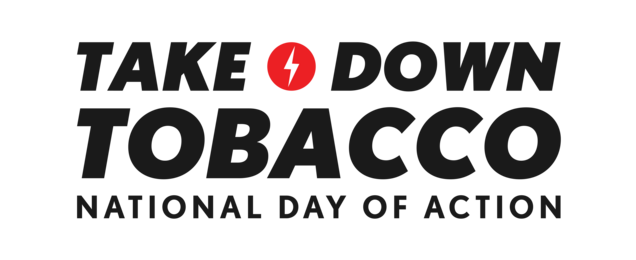- Enfermedades del Corazón en Adultos
- Enfermedad de la válvula aórtica
- Enfermedad de las Arterias Coronarias
- Enfermedades de la Válvula Mitral
- Enfermedad de la Válvula Tricúspide
- Trastornos del Ritmo Cardíaco
- Aneurisma de la Aorta Torácica
- Disección Aórtica
- El Dispositivo de Asistencia Ventricular Izquierdo (DAVI)
- Fibrilación Auricular (FA)
- OMEC VA
- La insuficiencia cardíaca
- Trasplante de corazón en adultos
Diseases of the arteries, valves, and aorta, as well as cardiac rhythm disturbances - Pediátrica y Cardiopatías Congénitas
- Comunicación interauricular
- Comunicación interventricular
- Tetralogía de Fallot
- Defecto del canal auriculoventricular
- Transposición de las grandes arterias
- Coartación de la aorta
- Tronco arterial común
- Defectos de ventrículo único
- Persistencia del conducto arterioso
- Trasplante de corazón en pacientes pediátricos
- Trasplante de pulmón en pacientes pediátricos
Heart abnormalities that are present at birth in children, as well as in adults - Pulmón, esófago, y otras enfermedades del pechoDiseases of the lung, esophagus, and chest wall
- ProceduresCommon surgical procedures of the heart, lungs, and esophagus
- Pre- y Post- Cuidado Operativo
- Antes de la cirugía de corazón
- El día de la cirugía de corazón
- Después de la cirugía de corazón
- Antes de la cirugía de cáncer de pulmón
- El día de la cirugía de cáncer de pulmón
- Luego de la cirugía para el cáncer de pulmón
- Antes de la cirugía para cardiopatías congénitas
- El día de la cirugía para cardiopatías congénitas
- Después de la cirugía para cardiopatías congénitas
How to prepare for and recover from your surgery
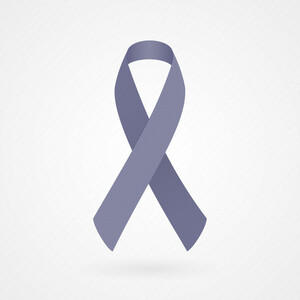
April is Esophageal Cancer Awareness Month, a time to learn the facts about esophageal cancer and become familiar with the symptoms and risk factors.
Esophageal cancer is one of the fastest-growing cancer diagnoses in the United States, with more than 20,000 new cases diagnosed each year, according to the American Cancer Society. One American dies of esophageal cancer every 36 minutes, which makes awareness and education so important.
Esophageal cancer is not entirely preventable, but knowing the risk factors and recognizing the symptoms can aid in early diagnosis.
Risk factors for esophageal cancer include:
• Obesity
• Smoking
• Alcohol usage
• Hiatal Hernia
• Gastroesophageal Reflux Disease (GERD)
Common symptoms of esophageal cancer include:
• Difficult or painful swallowing
• Weight loss
• Blood in the stool
• Loss of appetite
• Feeling very tired
• Heartburn (GERD)
• Pain in the throat or back
• Hoarseness or coughing
If you experience symptoms of esophageal cancer or feel that you may be at risk, schedule an appointment with your health care provider. Your doctor will review your health history, symptoms, and perform a physical exam to determine if further testing is necessary. Don’t be afraid to mention any questions or concerns you may have.
Learn more about esophageal cancer.
Read a patient’s personal journey through diagnosis, treatment, and recovery from esophageal cancer.
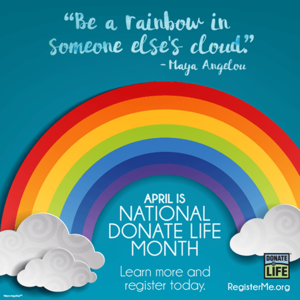
Celebrated in April each year, National Donate Life Month (NDLM) encourages Americans to register as organ, eye, and tissue donors and to celebrate those who have saved lives through the gift of donation.
Organ and tissue transplants are needed by people everywhere in the US. According to Donate Life America, there are currently 112,000 people waiting for an organ, with another person added to the waiting list every 10 minutes.
People of all ages and medical histories should consider themselves potential donors. Currently, there are 120 million people in the US who are registered as organ donors. For information about becoming one, visit Donate Life America or United Network for Organ Sharing (UNOS).
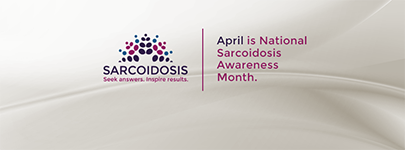
National Sarcoidosis Awareness Month brings attention to sarcoidosis and encourages further research into this rare condition. There are more than 200,000 people in the US with sarcoidosis, according to the CHEST Foundation.
Sarcoidosis is an inflammatory disease in which the immune system goes into overdrive, causing cells to group together into clumps called granulomas. While more than 90% of cases affect the lungs and lymph nodes, sarcoidosis also can cause skin and eye damage. Occasionally, those with sarcoidosis develop granulomas and inflammation in their hearts, which can trigger abnormal heart rhythms and heart failure.
Sarcoidosis can affect people of any age, but 70% of patients are ages 20 to 40, reports the CHEST Foundation. In addition, women are more likely to develop sarcoidosis.
Many patients never have symptoms, and the disease is diagnosed only because a chest X-ray is taken for another reason. In most of these cases, the disease improves by itself. However, your overactive immune system may lead to flu-like symptoms such as:
- Cough
- Shortness of breath
- Night sweats
- Joint pain
- Fatigue
After you’re diagnosed with sarcoidosis, your doctor will determine if you need treatment. If your symptoms are severe or organ function is threatened, you will likely be treated with medication. Organ transplant may be considered if sarcoidosis has severely damaged the lungs, heart, or liver. However, up to 30% of patients with sarcoidosis have symptoms improve without treatment. But even if there are no symptoms, patients with sarcoidosis should have breathing tests, electrocardiogram, blood tests, and an eye examination to uncover possible problems that may need to be addressed.
For more information, visit the CHEST Foundation.
Take Down Tobacco is the Campaign for Tobacco-Free Kids’ signature platform for empowering people to stand up and speak out against the tobacco industry. The Take Down Tobacco program is a 365 day a year effort that culminates every March/April with the Take Down Tobacco National Day of Action. This year’s Day of Action will be held on April 1.
Tobacco use continues to be the leading cause of preventable death in the US. While youth smoking rates are at an all-time low, the use of e-cigarettes by young people has skyrocketed to an all-time high and overall tobacco use among high school students is at the highest level in nearly two decades. The youth e-cigarette epidemic has now hooked 5.3 million kids, including 1 in 4 high school students. And almost 5,000 US kids start using e-cigarettes every day. Juul and other tobacco companies are targeting kids with slick marketing, thousands of kid-friendly flavors, and massive doses of nicotine. From cigarettes and cigars to smokeless tobacco to heat-not-burn cigarettes, the tobacco industry peddles a wide range of addictive and dangerous products that put kids at risk across the globe.
By getting involved in Kick Butts Day/Take Down Tobacco and other activities, America’s youth can raise awareness about the tobacco problem, encourage their friends to be tobacco-free, and urge elected officials to take action to protect kids from tobacco.
For more information, visit Take Down Tobacco.
